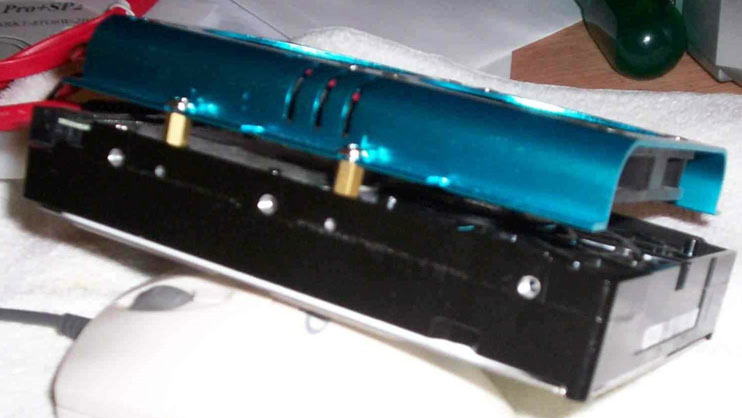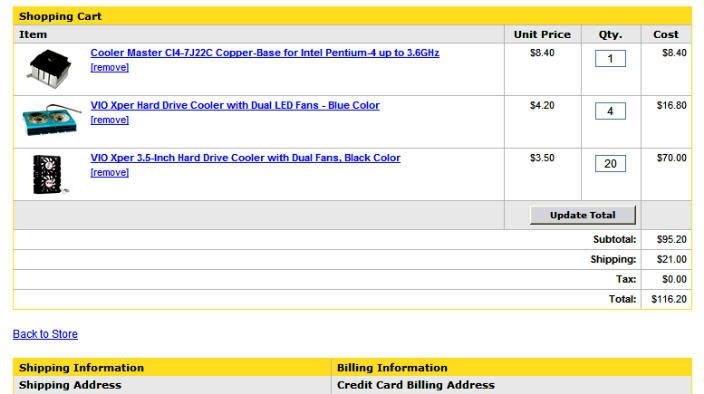Post by DrWho2006 on Apr 17th, 2007 at 2:34pm
Quote:
|
That was my experience too, and I installed dozens of them. Then one day while I was typing, like I am now, the drive squalled, balled and screeched to a halt. When I reached in to remove it, I burned my hand. It was hot enough to cook my lunch. That was the last Deathstar drive I ever used.
I now use only Maxtor drives, for their economy and reliability. (Likewise Seagate drives)
However, I won't even think of installing any HD in my own PC's without a two-fan cooler properly affixed. Remember....in electronics, "HEAT KILLS".
This photo has been corrected for size. thank you guys!
Without the 1/4" standoffs, the two fans have nowhere to exhaust their hot air and an Air-Dam results, in which cooling efficiency is seriously inhibited. With the fans running on the standoffs, proper air flow is assured and the drives always remain at room temperature. The shock factor of a drive heating up and cooling down just never happens.
People around the world who have tried this technique tell me that they have never had HD's that ran so cool. The little VIO coolers, only cost me about $4 ea. through a mail-order supplier. So they are the cheapest Life Insurance I could ever purchase for my drives. ;)
Cheers Mates!
The Doctor 8-)




